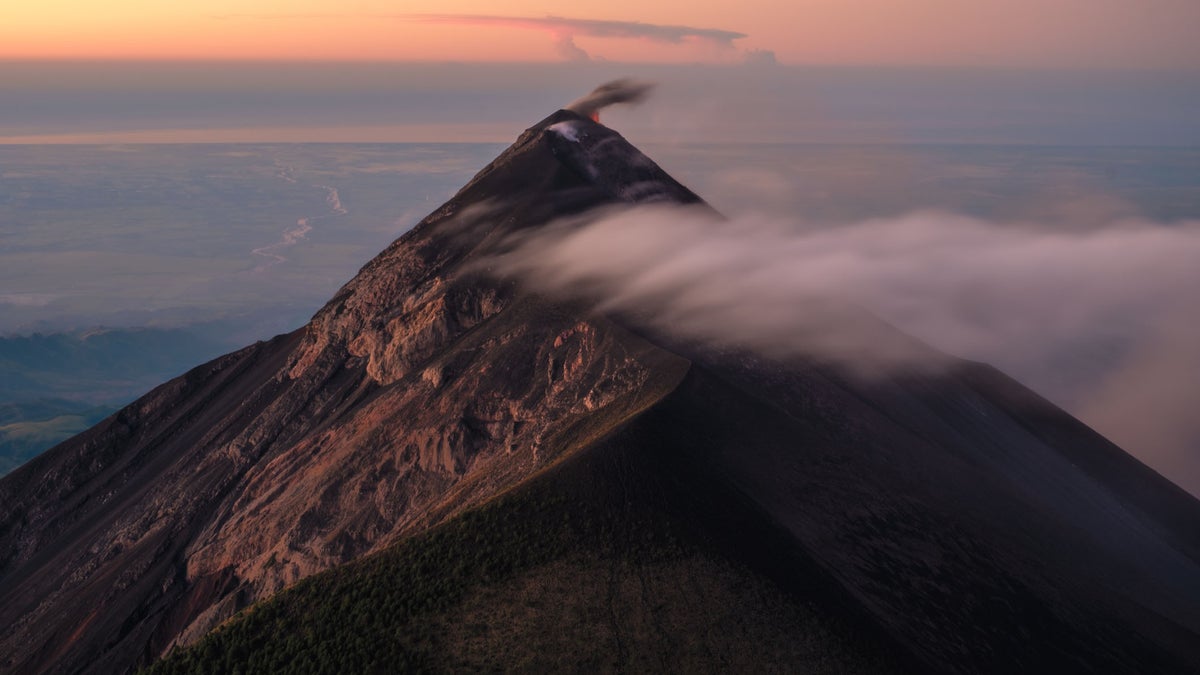No products in the cart.
Outdoor Adventure
My Worst Hike: The Guide Left Me Behind
I craned my neck, tipping my chin to the sky to gaze up at the behemoth before me, the 13,045-foot peak of Guatemala’s Acatenango vanishing into the clouds. The plan: to hike up and spend the night near the top of the active volcano. I swallowed. The “active” bit gave me pause, but it hadn’t erupted since 1972, and what’s life without a little risk now and then?
Surrounding me at the trailhead bus stop not far from the city of Antigua was a small cadre of locals who offered to loan determined hikers walking sticks for the equivalent of $5. I gladly forked over the cash and shouldered my daypack, which was much too small for the volume of supplies the guide company had outfitted me and my fellow hikers with.
Normally, I wouldn’t have opted for a guided, small group hike, especially for a trail as straightforward—and popular—as Volcán de Acatenango, as I’ve been backpacking since I was ten, but this trip had come together at the last minute. My friends had done the majority of the planning, and we were all traveling light. There was little choice but to shell out a few extra bucks and let someone else provide the gear.
But that gear was less than desirable, especially for a typically ultralight backpacker. Among the stack of supplies we were each given was an oversize parka from the 1980s or ’90s, bulky mittens, two liters of water in a hydration reservoir, and a Tupperware container packed with fully cooked—and very heavy—rice and vegetables. At least my container, unlike those distributed to the omnivores in the group, didn’t contain a whole cooked chicken breast, too.
I strapped anything that wouldn’t fit inside my pack on the outside, not knowing I’d spend the whole hike trying (in vain) to keep it all balanced and stop it from bouncing all over the place.
For the first hour we hiked up a steep slope of fine scree that offered an exasperatingly similar experience to trekking in sand, every step an exercise in frustration. My only consolation: I’d been told that it got easier after the first mile or so.
It did not. The trail continued in an endless climb for the next four hours. The upside was that the loose scree and fertile farmland eventually gave way to more solid packed earth and a thick forest that offered cover from the warming sun as well as tantalizing views of the valley below through small breaks in the tropical foliage.
But that didn’t make the going any easier. My gear swung and swayed. I lacked energy; I hadn’t eaten much for breakfast and didn’t want to eat much more for lunch for fear the exertion would result in it coming right back up. I could have been in better hiking shape, and to top it all off, the local guide kept leaving a few of us slower hikers so far behind that we wouldn’t see him for an hour. Then he would stop for a break with the rest of the group, wait for us to catch up, and immediately continue on as the slower contingent huffed and puffed along after the well-rested group at the front. The stress and frustration of being left behind made the hike even more unbearable.
Until we neared the top. Suddenly, I found myself hiking through clouds, wisps of cumulus drifting across the trail and through the dwarf pine trees and between barren, limbless trunks of the high-alpine forest. The path started to level out, and I naturally picked up the pace in anticipation of reaching camp.
When I did, I dropped my bag and collapsed onto a log bench with a sigh of relief. After catching my breath, I joined the rest of the group at a lookout point to watch the sun dip behind Fuego volcano, across the valley, and paint the sky with impossibly vibrant oranges and yellows.
And as darkness fell, I gasped in delight as lava exploded from Fuego, a luminous red-orange trickling down the mountainside. I was amazed at not only the majesty of nature but also how it could make the most painful hike of my life absolutely worth every grueling step.
Source link

